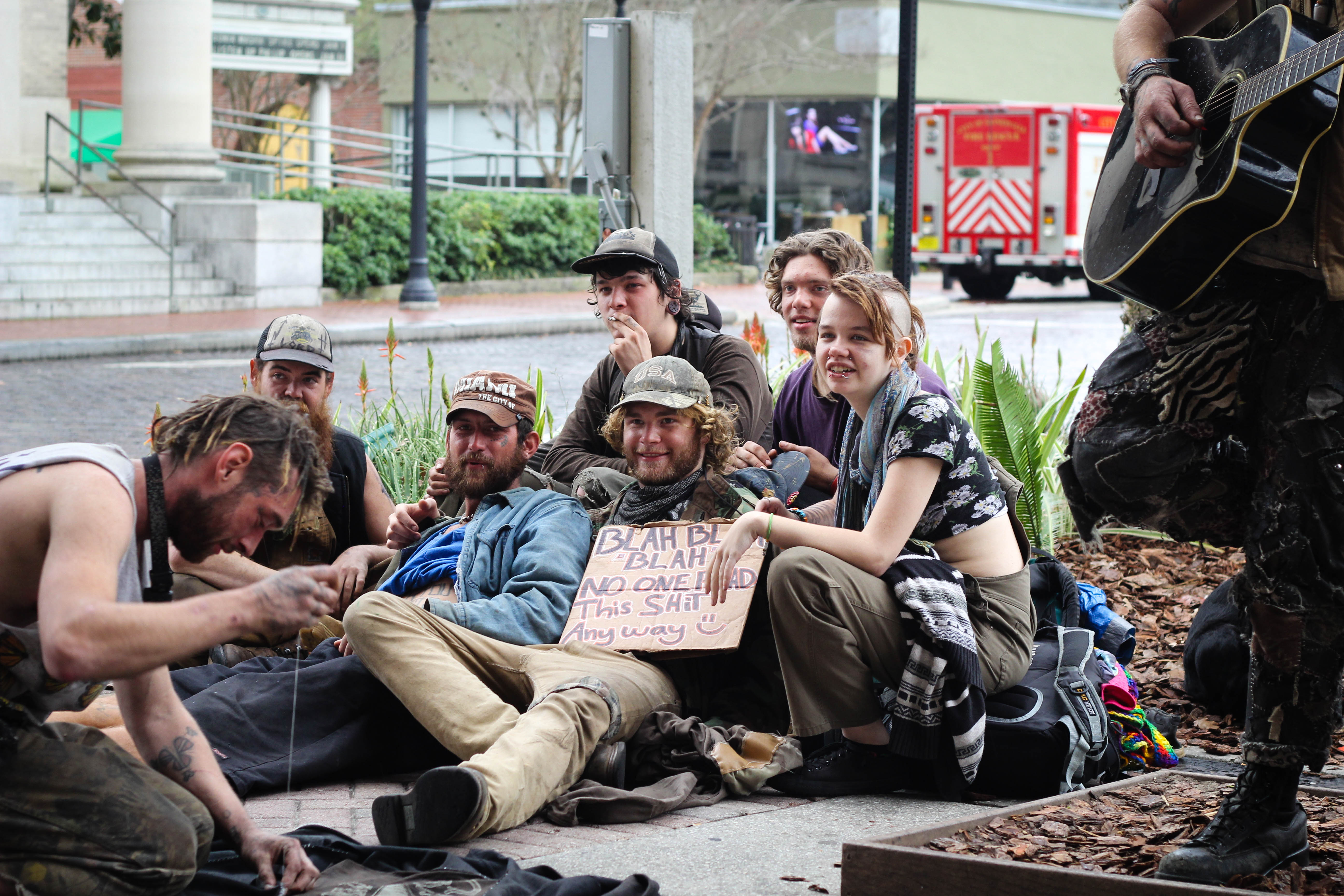Squatters Rights NYC: What Property Owners Need To Know Now
Property ownership in New York City brings with it a unique set of considerations, and one topic that often causes a lot of worry is the idea of "squatters rights nyc." It’s a subject that can feel a bit confusing, especially when you hear stories or read about different situations across the country. Protecting your property, your home, or your investment here in the city means having a clear picture of what the law actually says about people occupying a space without permission.
Many folks believe that someone can just walk into an empty place, stay for a short while, and suddenly gain legal standing. This idea, so, often comes from misunderstandings or from rules that apply in other places. New York City has its own distinct way of handling these situations, which can be quite different from, say, how things work in British Columbia, where removing squatters after a tax sale has its own specific steps, or even Florida, where some rumors suggest people can claim rights after just 30 days of living somewhere.
This article will help clear up some of that confusion. We’ll look at what "squatters rights" really mean in New York City, how they differ from tenant rights, and what steps a property owner can take if they find someone living in their space without permission. We will also discuss ways to keep your property safe and what to do if you find yourself in this kind of situation, too it's almost a guide for peace of mind.
Table of Contents
- Understanding Squatters Rights in NYC: The Basics
- Adverse Possession in New York: The Long Haul
- When Someone Moves In Without Permission: What to Do
- The Legal Process for Removal in NYC
- Protecting Your Property from Unwanted Occupants
- Frequently Asked Questions About Squatters Rights NYC
Understanding Squatters Rights in NYC: The Basics
The phrase "squatters rights" can make a property owner feel a little uneasy. In New York City, the situation is not as simple as some might think. It’s a topic that often comes up in conversations about vacant buildings or properties left unattended for a while. The general idea is that someone living in a place without permission might gain some sort of legal standing over time. This is a bit true, but the time frame and conditions are quite strict, that is really important to keep in mind.
What is a Squatter in New York City?
A squatter is, basically, someone who occupies land or property without the owner's permission. They do not pay rent and they have no legal right to be there from the start. This is different from a tenant who might have overstayed their lease or stopped paying rent. For a squatter, there was never any agreement, no lease, no verbal understanding, no nothing. It’s just someone taking up residence without any invitation or contract, you know.
Identifying a squatter early is really important. If you find someone in your property who just moved in, they are a trespasser. The quicker you act, the easier it usually is to remove them. This is a pretty big deal because the law starts to treat things differently the longer someone stays, sort of like a clock ticking, so.
Squatter vs. Tenant: A Big Difference
This distinction is probably the most important thing to grasp in New York City. The law here is very protective of tenants. If someone has ever paid you rent, even just once, or if you had a verbal agreement for them to live there, they are likely considered a tenant. Once someone is a tenant, even if they stop paying rent or their lease ends, you cannot just tell them to leave or change the locks. You have to go through a formal eviction process in housing court, and that process can take a lot of time and money, you know.
A true squatter, however, has no legal right to be in a property. They never had permission, never paid rent. This means the process for getting them out can be different, at least initially. It’s not an eviction in the same way you evict a tenant. It’s more about removing a trespasser. This difference is key to understanding what steps you can take, and it’s a point that often confuses property owners, frankly.
Adverse Possession in New York: The Long Haul
The legal concept that allows a squatter to potentially claim property is called "adverse possession." This is what people usually mean when they talk about "squatters rights." It’s a very old legal idea, but in New York, it’s not something that happens quickly or easily. It takes a very specific set of circumstances and a lot of time, and that's actually a relief for many property owners.
How Long Does It Take to Claim Property in NYC?
For a squatter to claim legal ownership of property in New York through adverse possession, they must occupy the property continuously and openly for a period of ten years. This is a very long time, as a matter of fact. It’s not like the rumors some people hear about Florida, where it might be thought to be just 30 days, or even New Jersey, where it can take 30 years of continuous occupation for a squatter to claim a residential property. New York is somewhere in between, but ten years is still a significant stretch.
During this ten-year period, the occupation must meet several conditions: it has to be hostile (without the owner's permission), actual (they must physically possess the property), open and notorious (their presence must be obvious), exclusive (they must be the only ones occupying it), and continuous (they can't leave and come back). They also need to show they have "cultivated, improved, or substantially enclosed" the property, or paid property taxes on it. This last part is particularly difficult for most squatters to prove, so that's a big hurdle.
Comparing NYC to Other Places
It’s really interesting to see how different places handle this. In British Columbia, for example, the rules around removing squatters after a tax sale can be quite specific, meaning even after you acquire a property, there are steps to follow. In Florida, some talk about a 30-day rule, but it's often more complex than that, and it's not simply about proving occupancy. The general idea of claiming rights after a certain time residing there is common, but the specific duration varies a lot, you know.
Michigan law saw changes in 2014 that affected these things. In Western Australia, squatters' rights are quite limited, and the rights of property owners are generally put first. In Victoria, Australia, bodies like VCAT can order squatters out. Idaho also has its own rules about how long a squatter has to leave once evicted and what their rights are. So, New York City’s ten-year rule for adverse possession, while long, is just one example in a wide range of legal approaches, you know, it's pretty diverse out there.
When Someone Moves In Without Permission: What to Do
Finding someone living in your property without your permission can be a very stressful experience. Whether you were on vacation, or the property was simply vacant, your immediate reaction might be to get them out as quickly as possible. However, the way you go about this is very important in New York City, so you need to be careful.
The Importance of Acting Quickly
If you discover a squatter, speed is your friend. The longer someone stays in your property, the more difficult it becomes to remove them without a formal court process. If you catch them very early, while they are still clearly trespassers, you might be able to involve law enforcement. However, once they establish even a short period of residence, even without permission, police often become hesitant to get involved, seeing it as a civil matter rather than a simple criminal trespass. This is a key point that many property owners don't realize, basically.
The moment you suspect or confirm someone is squatting, gathering evidence is a good idea. Take pictures, note dates, and document anything that shows they are there without your permission. This evidence will be useful if you need to go to court. This proactive approach can really make a difference later on, you know.
Avoiding Self-Help Eviction
In New York, it is absolutely against the law for a property owner to try to remove anyone from a property using "self-help" methods. This means you cannot change the locks, turn off utilities in your name on squatters, remove their belongings, or use any kind of force or threats to make them leave. Doing so, even if they are clearly squatters, can lead to serious legal trouble for you, the owner. You could face fines, or even be forced to let them back in, and pay them damages. This is a very common mistake people make, and it can backfire badly, you know.
Even if you have tenants that you served with a 3-day written eviction notice and they don't comply, you still have to file with the courts. The same principle, in a way, applies to squatters once they've established any sort of presence. The legal system wants things done through proper channels. So, while it might feel frustrating, resisting the urge to take matters into your own hands is really important for your own protection, you know, as a matter of fact.
The Legal Process for Removal in NYC
Since self-help is out, the only legal way to remove a squatter in New York City is through the court system. This process can be different from a standard tenant eviction, especially if the person is truly a squatter with no claim to tenancy. Understanding these steps can help you prepare for what’s ahead, and that's pretty helpful.
Getting Them Out Legally
If someone is a true squatter and has no legal right to be in your property, you might need to bring a "holdover" proceeding in Housing Court. This is a type of eviction case, but it focuses on the fact that the person has no right to possession, rather than a breach of a lease. You will need to serve them with legal papers, just like you would with a tenant. The court will then hear your case and, if you prove they are squatters, issue an order for them to leave. If they don't comply, a city marshal can then remove them. This process can still take weeks or even months, depending on the court's schedule and any defenses the squatter might try to raise, which is actually a bit of a wait.
It’s really important to have a lawyer who understands New York City housing law for this. They can help you prepare your case, serve the papers correctly, and represent you in court. Trying to do this on your own can lead to mistakes that delay the process or even get your case thrown out, meaning you have to start all over again. A lawyer can also help you determine if the person is truly a squatter or if they might be considered a tenant under some obscure rule, you know, that's really useful.
Utilities and Other Considerations
A common question property owners ask is, "Can I shut off utilities in my name on squatters?" The answer in New York is generally no, if they have established any sort of residence. Cutting off utilities like heat, water, or electricity is considered a form of illegal self-help eviction. Even if you believe they are squatters, doing this can put you in legal jeopardy. The courts want to see that you follow the proper legal channels, and that includes not making the living conditions unbearable for the occupants, even if they are unwanted, that is just how it is.
Also, if squatters have moved into your home while you were on vacation, how do you get them out quickly? The answer is still through the courts. While it's incredibly frustrating, the legal system prioritizes orderly removal. The speed of removal once evicted also varies. Some places might give a squatter a few days, others a bit longer. In New York, once a court order is issued, the marshal will typically give a notice period before physical removal, so there's always a bit of a waiting game. You can learn more about New York property laws on our site, and find resources to help with these situations on this page.
Protecting Your Property from Unwanted Occupants
The best way to deal with squatters is to prevent them from getting into your property in the first place. This is especially true for vacant properties, vacation homes, or properties that are undergoing renovations. Being proactive can save you a lot of headaches and legal fees down the line, and that's honestly the best approach.
Here are some practical steps you can take:
Secure Your Property: Make sure all doors and windows are locked and secured. Consider adding extra locks, security alarms, or even boarding up windows if a property will be vacant for a long time. A property that looks abandoned is more likely to attract unwanted attention, so making it look lived-in or well-maintained can deter people, you know.
Regular Inspections: If you have a vacant property, visit it regularly or have someone you trust check on it often. Frequent visits can help you spot any signs of unauthorized entry early. The sooner you find someone, the easier it is to act, as we discussed earlier, that is pretty important.
Post "No Trespassing" Signs: Clearly visible "No Trespassing" signs can help establish that entry is not permitted. While they won't stop everyone, they do help reinforce your legal position if you need to involve the police or go to court. It makes it clear that there's no implied permission, so.
Install Security Systems: Cameras, motion-sensor lights, and alarm systems can be very effective deterrents. They can also provide valuable evidence if someone does try to enter or occupy your property. This technology is pretty accessible these days, you know.
Consider Property Management: If you own a property but don't live nearby or can't visit often, hiring a property management company can be a good idea. They can handle regular checks, maintenance, and respond quickly to any issues, including unauthorized entry. This can give you a lot of peace of mind, really.
Know Your Neighbors: Building a good relationship with neighbors around your vacant property can be helpful. They might notice unusual activity and alert you, acting as extra eyes on your investment. A community watch, in a way, can be very effective.
Taking these preventative steps can greatly reduce the risk of dealing with squatters in your New York City property. It's much easier to keep them out than to get them out once they've settled in, as a matter of fact. Being prepared and vigilant is your best defense against these kinds of issues, and that's just the truth of it.
Frequently Asked Questions About Squatters Rights NYC
Here are some common questions people ask about squatters rights in New York City, which often come up in conversations or online searches, too it's almost always on people's minds.
What is the 30-day squatter law in NYC?
There isn't a specific "30-day squatter law" in New York City that grants squatters immediate rights after only 30 days. This idea is a common misunderstanding, perhaps from rumors or laws in other states, like the Florida example where some believe it's 30 days. In NYC, the law is much more complex. If someone stays in your property for 30 days, they might start to be viewed differently by the courts, possibly as an "occupant" who then needs a formal court process to be removed, rather than just a simple trespasser. This doesn't mean they have "rights" to stay, but it means you can't just call the police to remove them; you'll need to go to Housing Court. It's a procedural hurdle, not a right to claim the property, you know.
How do you legally remove a squatter in NYC?
The only legal way to remove a squatter in New York City is through a court process. This typically involves filing a "holdover" case in NYC Housing Court. You'll need to serve the squatter with formal legal papers, and then attend court hearings. If the court agrees that the person is a squatter and has no right to be there, they will issue a warrant of eviction. Only a city marshal can then physically remove the squatter from the property. You cannot use force, change locks, or cut off utilities yourself. Trying to do so is illegal and can lead to trouble for you, the property owner, you know, it's pretty strict.
Can squatters claim property in NYC?
Yes, squatters can claim property in New York City, but it is extremely difficult and rare. This process is called "adverse possession." For a squatter to successfully claim ownership, they must occupy the property continuously, openly, hostilely (without permission), exclusively, and actually for a period of ten years. During this time, they also typically need to show they have improved the property, or paid property taxes on it. This is a very high bar to meet, and very few adverse possession claims are successful. It's not something that happens overnight or even in a few months, you know, it's a very long game.
For further details on NYC housing court procedures, you might find it helpful to look at resources from the New York City Civil Court's Housing Part. They provide information on various types of cases, including those involving occupants without leases.

Squatters along the railway tracks in Manila, Philippines Stock Photo

What Is A Squatter

Squatters in manila philippines hi-res stock photography and images - Alamy